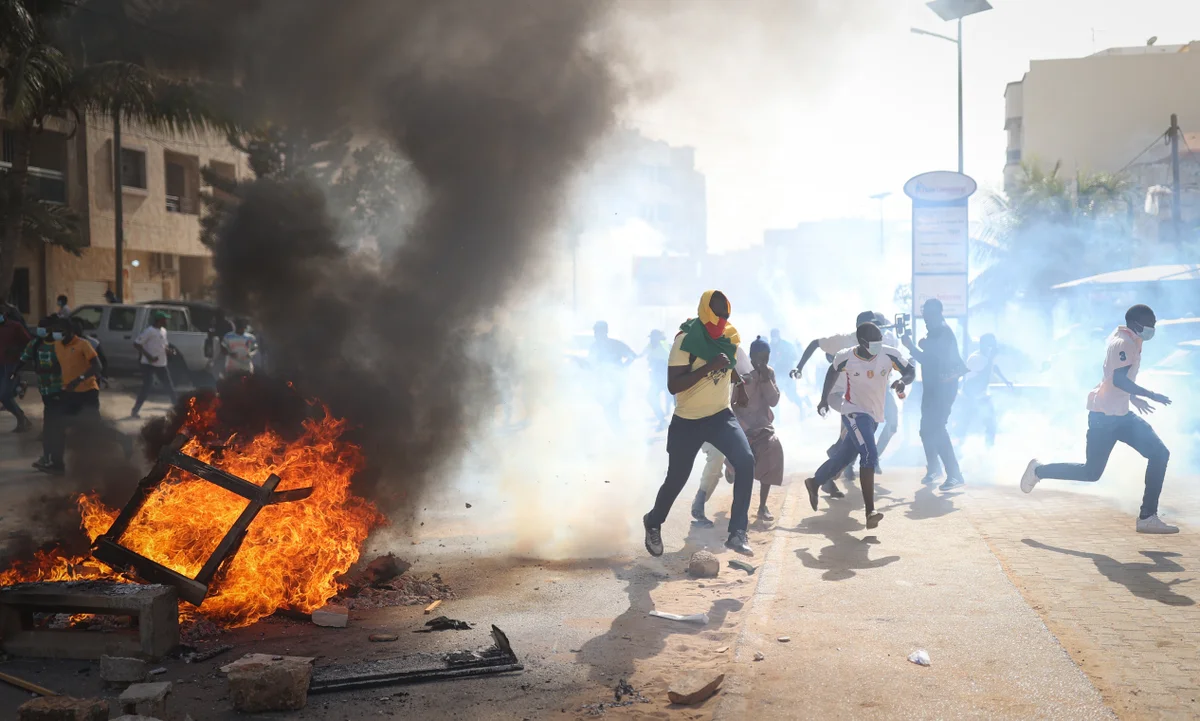Senegal’s democratic image under strain amid escalating electoral violence

As Senegal gears up for early legislative elections, the campaign has been marred by an unsettling wave of violence that is challenging the country’s long-standing democratic reputation.
Once a beacon of stability in West Africa, Senegal now faces calls for peace and accountability from both citizens and civil society as the 17 November election app roaches.
Human Rights Advocate Alioune Tine Calls for Justice and Security
Alioune Tine, founder of the think tank AfrikaJom and a prominent human rights advocate, expressed concern over the increasing violence.
Tine, a former United Nations independent expert, urged the government to ensure public safety by investigating all acts of violence impartially, regardless of political affiliation.
“The authorities must act without bias and rigorously to reassure the population and prevent further escalation,” he stated.
Tine emphasized that impartial justice is key to restoring public trust in Senegal’s institutions.
He pointed to the contrasting treatment of political figures as a source of frustration: Abass Fall, a member of the ruling party, has not been summoned for investigation despite calls for violence, while opposition member Bougane Gueye Dany was swiftly arrested and tried.
Tine argued that such disparities in treatment are fueling discontent and heightening political tensions.
Erosion of Democratic Debate
In Senegal, lively election debates have long been part of the political landscape. But this year, the focus has shifted to violent confrontations and inflammatory rhetoric, overshadowing candidates’ proposals.
Moussa Diaw, a researcher at Gaston Berger University in Saint-Louis, lamented this shift, saying, “After decades of fighting for democracy, this regressive political culture is undermining the country’s democratic progress.”
Jean-Charles Biagui, a political science expert at Cheikh Anta Diop University, described the violence as a reflection of entrenched political practices.
He argued that Senegalese politics remains dominated by insults and manipulation, with vital social and economic issues relegated to the background.
Government Urged to Take Responsibility
President Bassirou Diomaye Faye has pledged to uphold peace and enforce sanctions against those responsible for inciting violence, regardless of their political affiliation.
Returning from an official trip, he reaffirmed the government’s commitment to ensuring a peaceful campaign.
However, some observers remain unconvinced, arguing that the government has yet to take adequate measures to curb the escalating violence.
Several civil society groups, including the religious association Présence Chrétienne, have joined the call for calm and adherence to the electoral code.
They warned against hate speech that could further divide the population and threaten Senegal’s republican values.
Potential for a Peaceful Dialogue
Many citizens are hopeful that a public debate between the two main candidates, former Prime Minister Amadou Ba and current Prime Minister Ousmane Sonko, could shift the campaign’s focus back to policy and reduce the prevailing hostility.
This face-to-face debate, although postponed for now, is seen as a possible turning point that could foster a more peaceful and constructive dialogue.
In a country facing increasing tension and mounting violence, the upcoming election presents a test for Senegal’s democracy and its resilience in the face of political divisions.
About The Author
dailymailafric
I am an avid African news observer, and an active member of Daily Mail Africa.
I’m Passionate about staying informed on diverse topics across the continent,
I actively contribute to publishing on political, economic and cultural developments in Africa.



